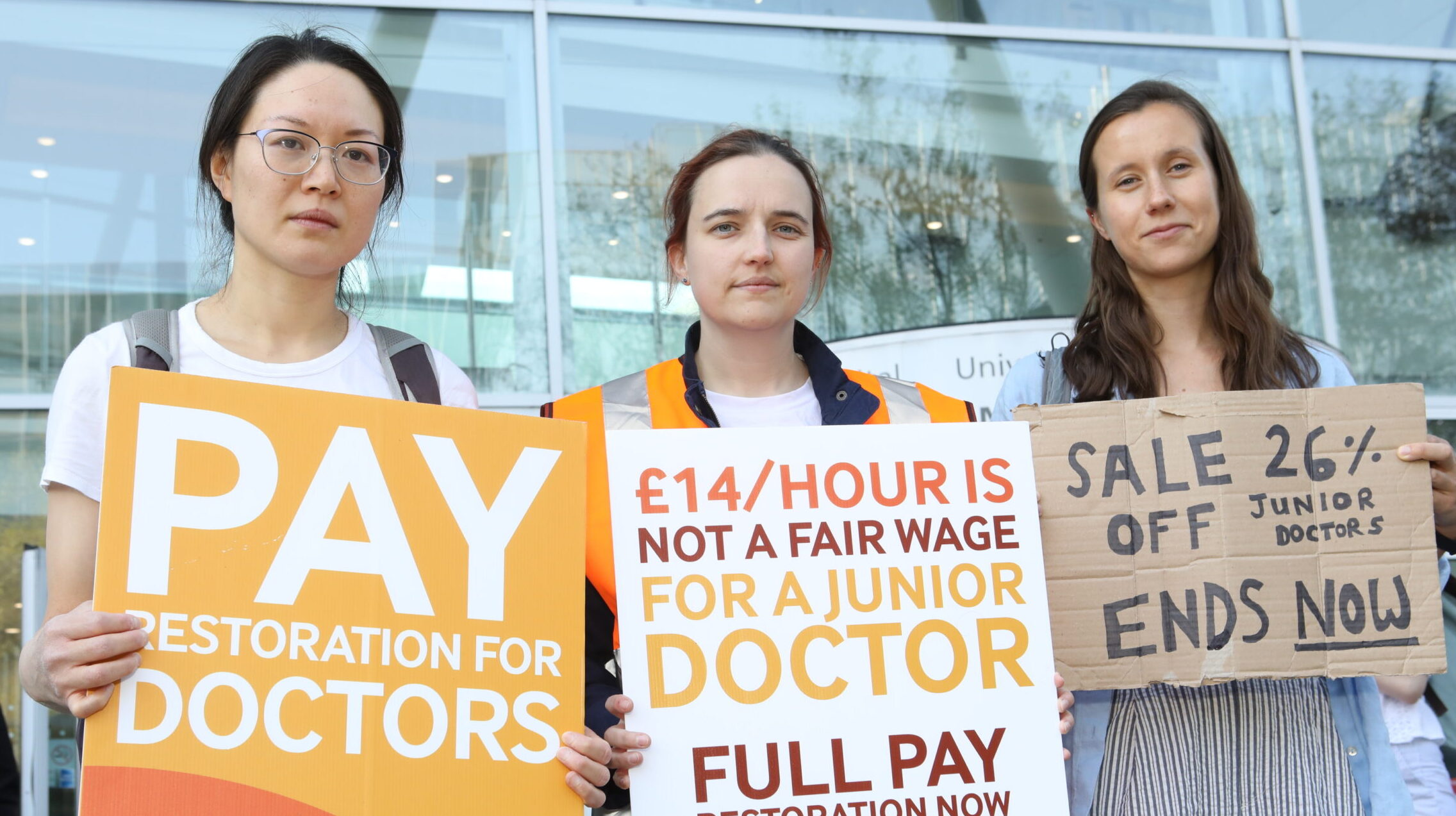The unions had threatened to coordinate strike action to clash with this autumn’s Conservative Party conference – and Rishi Sunak’s keynote speech in particular. If members vote to accept, further industrial action will be called off.
“If members accept this deal, then the dispute we have currently with the government on pay is over for this year,” NEU joint general secretary Mary Bousted told Sky News. “That’s the end of this dispute.”
Where will the money come from? The pay rises will be funded by “reprioritising” government budgets, as reported by the Guardian, with 4% of the pay award to be funded from schools’ existing budgets, according to a statement from the Department for Education.
Hospital strikes
Junior doctors in England recently conducted the longest-ever continuous strike in the history of the NHS, with strikers refusing to work for 120 hours. They have been offered a 6% increase, along with a consolidated rise of £1,250, but this falls far below the British Medical Association’s ask of 35%.
Prime Minister Rishi Sunak urged the BMA to “do the right thing” and call off further strikes.
Senior doctors (consultants) have also been offered 6%, but rather than accept the deal, the BMA has announced two additional days of strike action in response to what it has called a “derisory” offer.
Advertising helps fund Big Issue’s mission to end poverty
Your support changes lives. Find out how you can help us help more people by signing up for a subscription
“The BMA will continue to fight for the full restoration of pay lost since 2008”, the union said in a statement.
In Scotland, an offer of a 12.4% rise to junior doctors was enough to persuade The BMA in Scotland to suspend three days of planned strike action while the union asks members to vote on the offer.
How will it be funded? The pay rise will partly be funded by charging migrant workers more money to use NHS services. “More borrowing would add pressures on inflation at exactly the wrong time, risking higher interest rates and higher mortgage rates,” said the Department for Health in a statement. Instead of borrowing, the government plans to raise the immigration health surcharge to at least £1,035.
Train strikes
Some 20,000 railway workers at 14 train operating companies are set to strike for three days in July: Thursday 20, Saturday 22, and Saturday 29. This is part of the ongoing dispute between the union and the train operating companies, whose decisions on pay are made in collaboration with the Department for Transport.
RMT members have voted three times to take strike action over the last year, and it seems the stalemate has become entrenched.
Advertising helps fund Big Issue’s mission to end poverty
Get the latest news and insight into how the Big Issue magazine is made by signing up for the Inside Big Issue newsletter
Mick Lynch, leader of the RMT, has said: “quite incredibly, neither party has made any attempt whatsoever to arrange any meetings or put forward a decent offer that can help us reach a negotiated solution.”
“The government continues to shackle the companies and will not allow them to put forward a package that can settle this dispute.”
A Department for Transport spokesperson told the Big Issue: “This government has played its part by facilitating fair and reasonable pay offers that would see generous increases for rail workers. Union leaders should stop blocking their members from having a vote on these offers and give them the chance to help resolve this dispute.”
Without an olive branch from either side, a second winter of train strikes could yet be on the cards.









